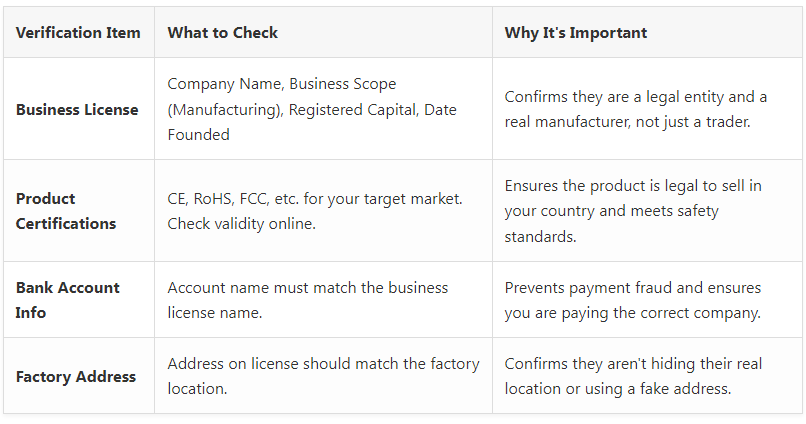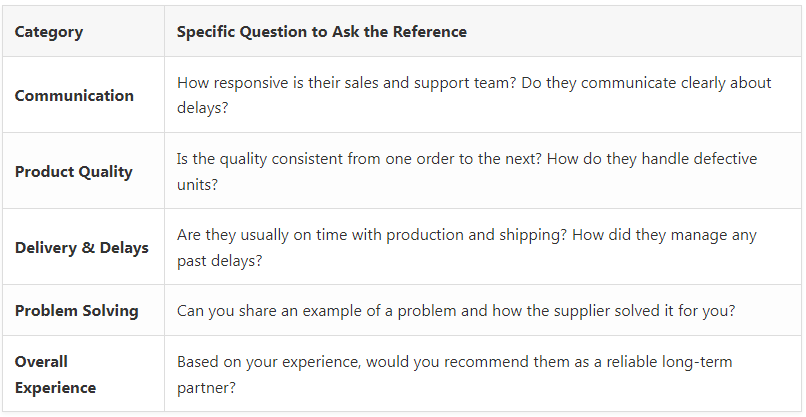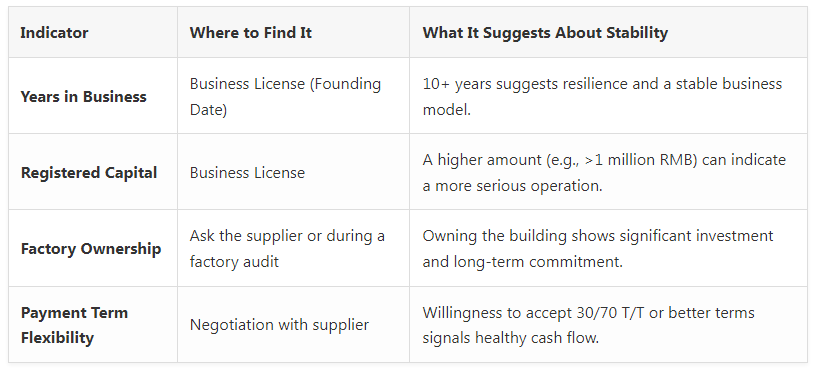Find a Chinese Supplier for portable Massagers? Our Vetting Guide
- By Grace
- Updated on

Struggling to find a trustworthy supplier for your custom massagers? A bad partner can waste your time and money, damaging your brand's reputation. I'll guide you through the exact process I use to find the best partners.
To find a reliable Chinese supplier, I always start on platforms like Alibaba but then conduct my own deep research. I verify their business license and product certifications like CE or RoHS, always test product samples thoroughly, and arrange third-party factory inspections before placing any large orders.
This process might seem like a lot of work, but it's the only way to protect your business and ensure you get the quality products your customers expect. Let's break down the key areas you need to investigate to find a partner you can trust for years to come.
What information should I check to verify a Chinese supplier's reliability?
You've found a supplier online, and their website looks professional, but how do you know if they're real? It's easy to be fooled by a polished website. I'll show you the essential documents I always check to separate the legitimate factories from the fakes.
I always start by asking for fundamental documents. This includes their updated business license, relevant product certifications for my market (like CE, RoHS, and FCC), and their quality management system certificate, such as ISO 9001. These papers are the first, most basic proof of their legitimacy.

Verifying a supplier isn't just about looking at the documents they send you; it's about checking if those documents are authentic and if the information matches across different sources. This is a critical step that many new buyers skip, often leading to problems later. For someone like my client Jeff, who values precision and professionalism, getting this right from the start is non-negotiable. He doesn't have time for suppliers who can't provide basic proof of their operations.
Essential Documents and What They Tell You
When you begin talking to a potential supplier, you should create a checklist of documents to request. A professional and legitimate supplier will have these ready and will not hesitate to share them. If they make excuses or delay, it's a major red flag.
- Business License: This is the most important document. It proves the company is legally registered in China. You should check the company's official name, registered address, and, most importantly, the "Business Scope." Make sure their business scope includes "manufacturing" or "production" of electronic goods or massagers. If it only says "trading" or "consulting," they are not a factory.
- Product Certifications: Depending on your target market, you'll need specific certifications. For example, you need CE for Europe, FCC for the United States, and RCM for Australia. Ask for copies of these certificates for products similar to yours. Check the certificate number and the issuing body to make sure they are valid.
How to Cross-Reference Information
Never take a document at face value. You need to cross-reference the information to ensure it all lines up.
- Company Name Consistency: The company name on the business license should exactly match the name on their Alibaba profile, their invoices, and their bank account information. If you are asked to pay into a personal bank account or an account with a different company name, it is a huge red flag for a scam.
- Online Verification: You can use China's National Enterprise Credit Information Publicity System to verify a business license. You may need some help with translation, but you can enter the company's registration number to see their official records. This confirms they are a real, active company.
- Factory Audits: The ultimate verification is a factory audit. You can hire a third-party inspection company in China for a reasonable fee. They will visit the factory, confirm it exists at the registered address, check their production lines, and verify their quality control processes.
Here is a simple checklist you can use:

By being thorough at this stage, you build a solid foundation for your business relationship and avoid the common pitfalls that trap inexperienced importers.
Can I get references from other Australian or Canadian buyers for Chinese massager suppliers?
You want solid proof that a supplier can deliver, not just their own promises. But asking for references can feel awkward, and you might worry they'll give you a fake contact. I'll share how I approach this to get real feedback from real buyers.
Yes, and I always do this. I ask potential suppliers to connect me with one or two of their current clients in a non-competing business in Australia or Canada. Speaking directly with another buyer gives me honest, real-world insight into their communication, quality, and delivery reliability.

A good supplier who is confident in their service will be happy to provide references. They understand it's part of building trust. If a supplier refuses or makes excuses, I consider it a major red flag and usually stop communicating with them. They might claim "client confidentiality," but they can always ask their client for permission first. A refusal often means they either have no happy clients or they are hiding something. This step is especially important for detail-oriented buyers like Jeff, who trust peer experience far more than a sales pitch. He needs to know that a supplier has a proven track record of success, especially in Western markets like Australia.
How to Effectively Ask for and Use References
Getting a reference is one thing, but getting useful information from them is another. You need to be strategic in how you ask the supplier and what you ask the reference.
Step 1: Asking the Supplier
Be polite but direct. Don't just ask, "Can I have a reference?" Instead, be specific:
"As we move forward, an important part of our due diligence is speaking with some of your current customers. Could you please introduce us to a client in Australia or Canada who has been buying custom massagers from you for over a year? We would love to hear about their experience."
This approach shows you are serious and have a clear process, making it harder for them to say no.
Step 2: What to Ask the Reference
Once you get a contact, prepare your questions beforehand to respect their time and get the most information. You want to understand their entire experience, from placing an order to receiving the goods.

The question about problem-solving is the most important one. No supplier is perfect; problems will happen. What separates a great supplier from a bad one is how they fix problems. Do they take responsibility and find a solution, or do they make excuses and blame others?
Alternatives if You Can't Get a Reference
Sometimes, even a good supplier might not be able to provide a reference for privacy reasons. If that happens, you have other options:
- Check B2B Platform Reviews: Look at their transaction history and reviews on platforms like Alibaba. Look for detailed reviews from buyers in your region.
- Search on LinkedIn: Look up the company on LinkedIn and see if you can find any of their clients. You might be able to connect with a purchasing manager from another company who works with them.
- Industry Forums: Join online forums or Facebook groups for e-commerce sellers or importers. You can ask if anyone has experience with a particular supplier.
Using references is a powerful way to look behind the sales pitch and see how a supplier truly operates.
How do I assess the financial stability of a potential Chinese ODM partner?
You've found a factory that seems technically capable, but what if they go bankrupt in the middle of your production run? Your deposit would be gone. I use a few simple, indirect checks to gauge a company's financial health and avoid this nightmare scenario.
While it's difficult to get a full financial report, I assess stability by looking at key indicators. I check their registered capital and founding date on the business license, ask if they own their factory building, and see how flexible they are with payment terms.

A company's financial health is crucial for a long-term partnership, especially for custom ODM projects that require significant investment in molds and development. A financially weak supplier might cut corners on materials to save money, or they might not be able to survive a slow period, putting your supply chain at risk. I've seen buyers lose their deposits because a supplier suddenly closed down. That's why I look for signs of stability before committing to a large order. A supplier who has been in business for over a decade, owns their own building, and can offer fair payment terms is almost always a safer bet.
Key Indicators of Financial Stability
You don't need to be a financial expert to get a general idea of a supplier's stability. Here are the practical things I look at.
1. Information from the Business License
The business license contains two very useful pieces of information:
- Founding Date: A company that has been operating for 10 or 20 years has survived market ups and downs. This longevity is a strong indicator of stability. A company founded just last year is a much higher risk.
- Registered Capital: This is the amount of capital the owners have committed to the business. While this number can sometimes be inflated, a manufacturer with very low registered capital (e.g., less than 500,000 RMB) might be underfunded. A higher number generally suggests a more serious, well-funded operation.
2. Factory Ownership
During your communication or factory audit, ask a simple question: "Do you own the factory building, or do you rent it?" A supplier who owns their factory has significant physical assets. This means they have invested heavily in their business and are less likely to disappear overnight. Renting is common, but ownership is a big plus for stability.
3. Willingness to Offer Favorable Payment Terms
A supplier's policy on payment terms can tell you a lot about their cash flow.
- Unstable Supplier: A financially struggling supplier will often demand a large upfront deposit (50% or more) and may even ask for full payment before production begins. They need your money to buy raw materials.
- Stable Supplier: A financially healthy supplier is confident in their cash flow. They will typically accept standard payment terms, such as 30% deposit to start production and 70% balance after quality inspection but before shipping. For long-term clients, they may even offer better terms, like releasing the goods after receiving a copy of the bill of lading. This is something my client Jeff looks for, as it shows the supplier is a true partner, not just a cash-hungry vendor.
Here's a quick reference table:

By looking at these factors together, you can build a picture of a supplier's financial health and reduce the risk of your partner disappearing with your money.
What are the common red flags when searching for Chinese portable massager manufacturers?
You're excited to start your project, but you need to spot trouble before it starts. Ignoring early warning signs is the fastest way to a failed project and lost money. I've learned from experience to recognize these red flags instantly.
For me, the biggest red flags are poor or slow communication and a complete refusal to provide samples or allow a factory inspection. If their replies are vague, if they take days to answer simple questions, or if they resist proving their quality, I walk away immediately.

These red flags are not just minor annoyances; they are indicators of deeper problems with the company's culture, capabilities, or even their legitimacy. A client of mine, Jeff, has zero tolerance for unprofessionalism. His biggest pain point is wasting time with sales reps who don't understand their own products. He knows that if communication is bad before you've even paid, it will only get worse once they have your money. Spotting these warning signs early saves you from months of frustration, costly delays, and receiving a product that doesn't meet your standards.
Communication and Professionalism Red Flags
Your first interactions with a supplier are very telling. Watch out for:
- Slow or No Replies: A professional company will reply within 24-48 hours. If they consistently take longer, it shows they are either disorganized or not interested in your business.
- Vague Answers: If you ask a specific technical question about the massager's motor or battery life and they give a generic, non-committal answer, it's a sign the salesperson doesn't know their product. This leads to misunderstandings and mistakes.
- Unprofessional Website and Emails: While perfect English is not required, an email full of errors or a poorly designed website from the 1990s can be a sign of an unprofessional operation.
- High-Pressure Sales Tactics: If a supplier pressures you to place an order or make a payment immediately, be very careful. A good partner wants to build a long-term relationship, not just make a quick sale.
Mismatches and Unbelievable Claims
If something seems too good to be true, it usually is.
- Price is Too Low: If one supplier's quote is significantly lower than all the others, it's a major red flag. They are likely using cheap, low-quality components, have misunderstood your requirements, or plan to raise the price later with unexpected fees.
- They "Manufacture Everything": Be cautious of a supplier who claims to make a huge variety of unrelated products (e.g., portable massagers, phone cases, and clothing). They are almost certainly a trading company, not a specialized manufacturer. For custom products, you need a specialist.
Resistance to Due Diligence
This is the most serious category of red flags. A legitimate, confident manufacturer will be transparent and welcome your verification process. If they resist, they are hiding something.
- Refusing to Send a Sample: A supplier who is unwilling to provide a sample is a deal-breaker. There is no reason to refuse unless their quality is terrible.
- No Factory Visit or Inspection: A hard "no" to a factory visit or a third-party inspection is a clear sign you should run. They might be a trading company posing as a factory, or their workshop conditions might be horrible.
- Unusual Payment Requests: If they ask you to pay 100% upfront or to a personal bank account, it is very likely a scam. Standard practice is a deposit via a company T/T (Telegraphic Transfer) account.
Paying attention to these red flags is just as important as verifying documents. It's about trusting your instincts and walking away from a deal that doesn't feel right.
Conclusion
Finding the right Chinese supplier is about careful verification and building a real partnership, not just chasing the lowest price. Use these steps to protect your investment and ensure your long-term success.




